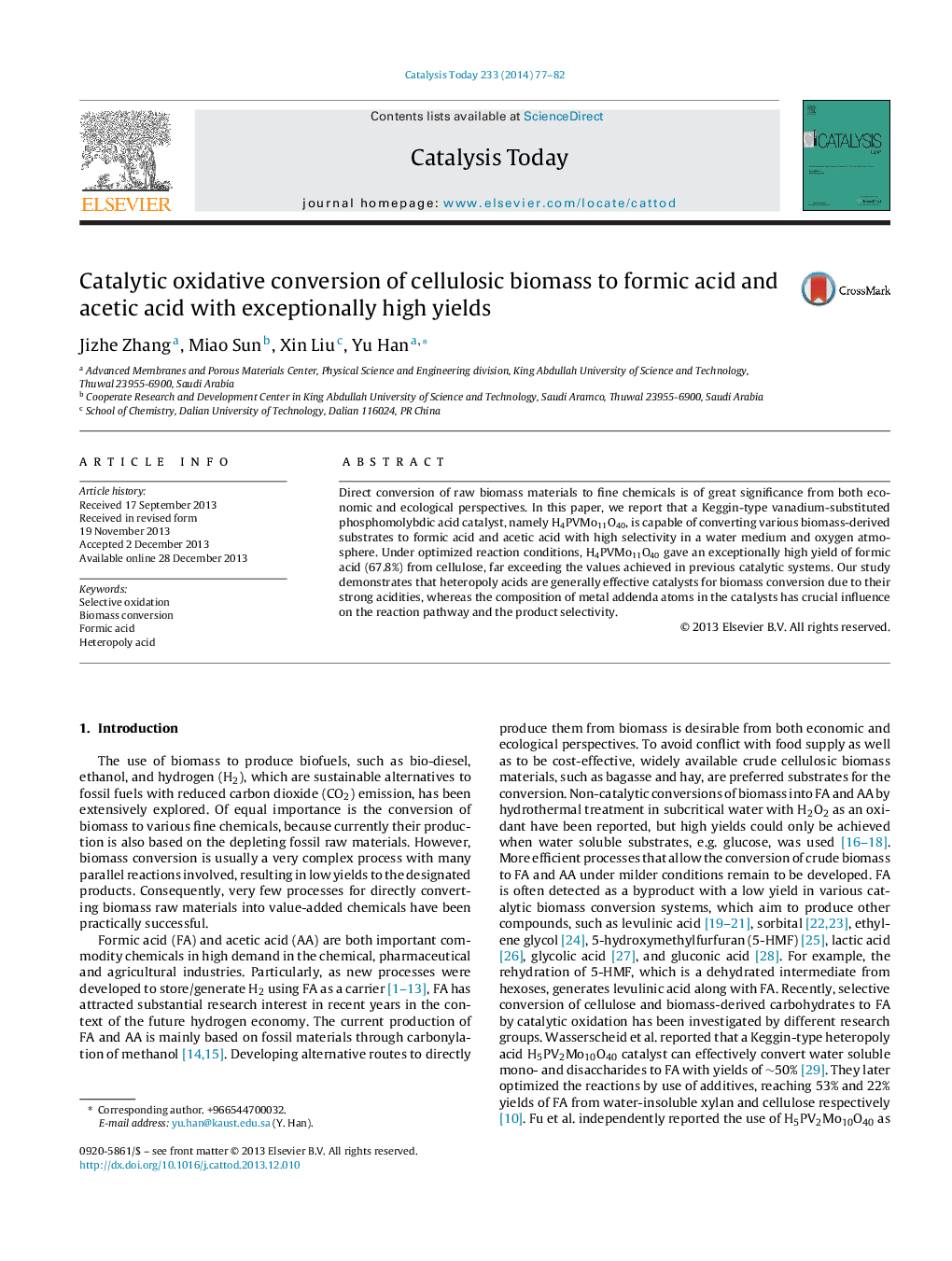| کد مقاله | کد نشریه | سال انتشار | مقاله انگلیسی | نسخه تمام متن |
|---|---|---|---|---|
| 54315 | 47005 | 2014 | 6 صفحه PDF | دانلود رایگان |
• V-substituted phosphomolybdic acid is used as a catalyst for biomass conversion.
• Cellulose is converted to formic acid with high yield in water media with oxygen.
• This catalytic system is also effective for converting crude biomass materials.
Direct conversion of raw biomass materials to fine chemicals is of great significance from both economic and ecological perspectives. In this paper, we report that a Keggin-type vanadium-substituted phosphomolybdic acid catalyst, namely H4PVMo11O40, is capable of converting various biomass-derived substrates to formic acid and acetic acid with high selectivity in a water medium and oxygen atmosphere. Under optimized reaction conditions, H4PVMo11O40 gave an exceptionally high yield of formic acid (67.8%) from cellulose, far exceeding the values achieved in previous catalytic systems. Our study demonstrates that heteropoly acids are generally effective catalysts for biomass conversion due to their strong acidities, whereas the composition of metal addenda atoms in the catalysts has crucial influence on the reaction pathway and the product selectivity.
Figure optionsDownload high-quality image (148 K)Download as PowerPoint slide
Journal: Catalysis Today - Volume 233, 15 September 2014, Pages 77–82
